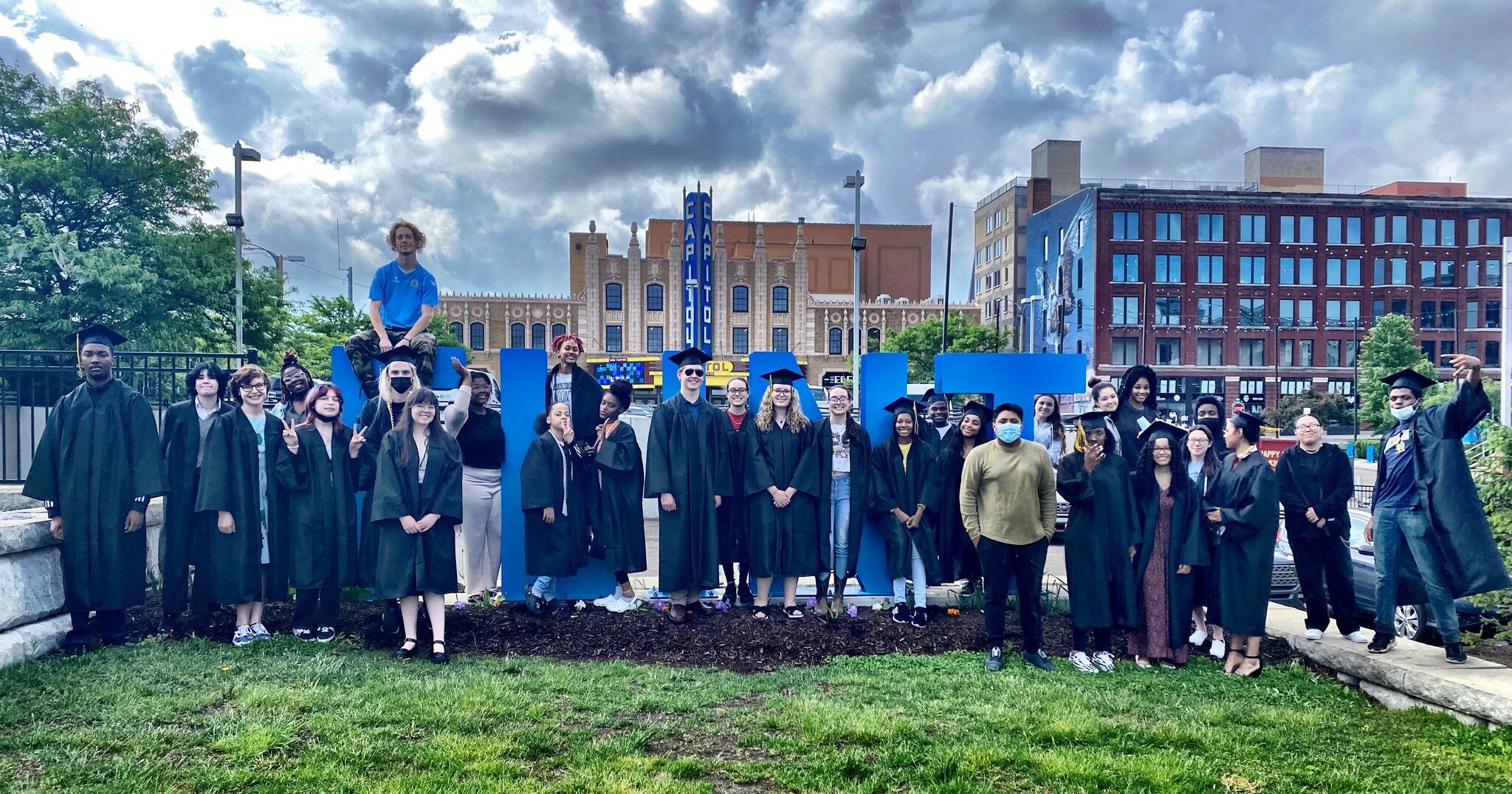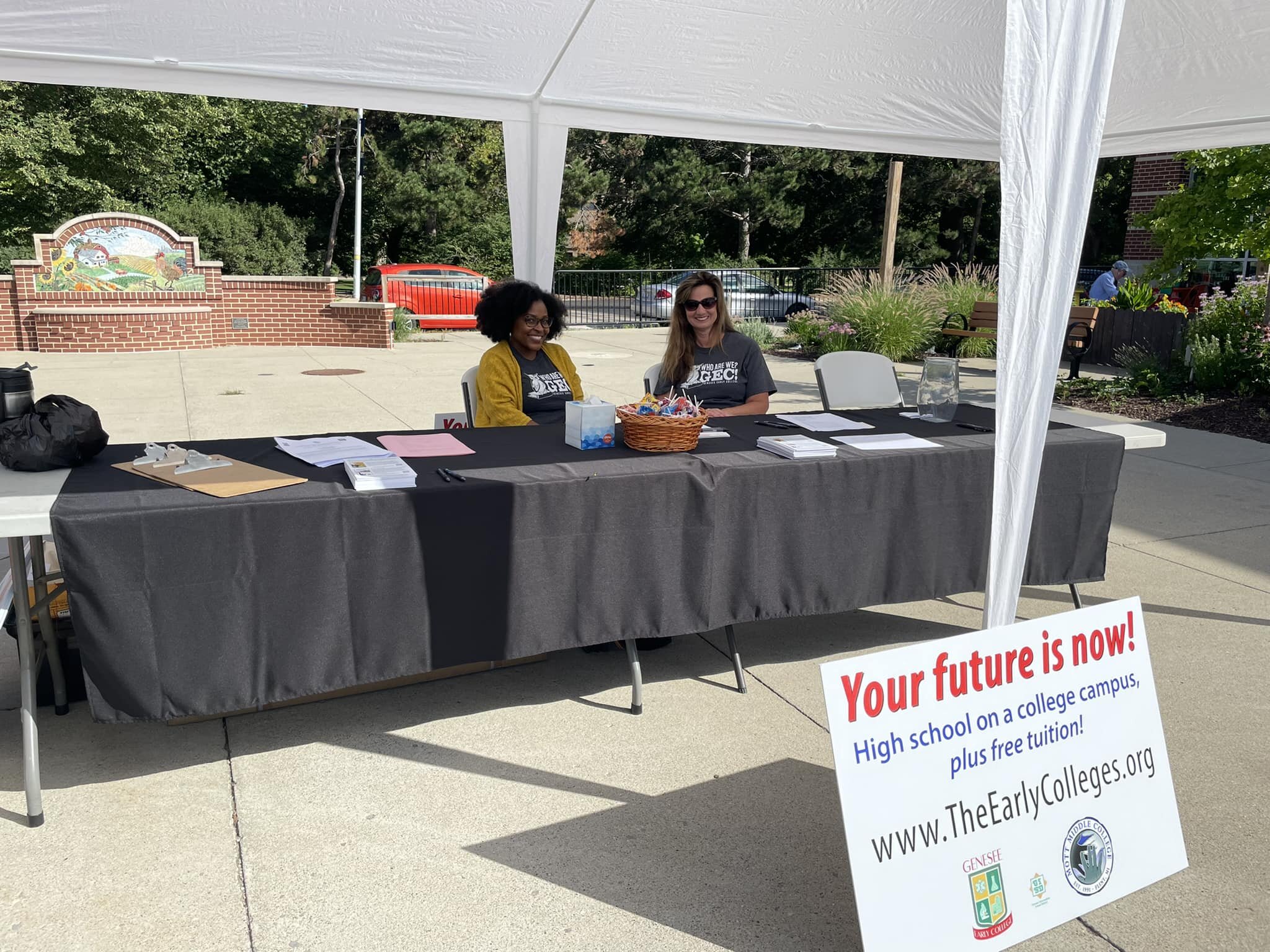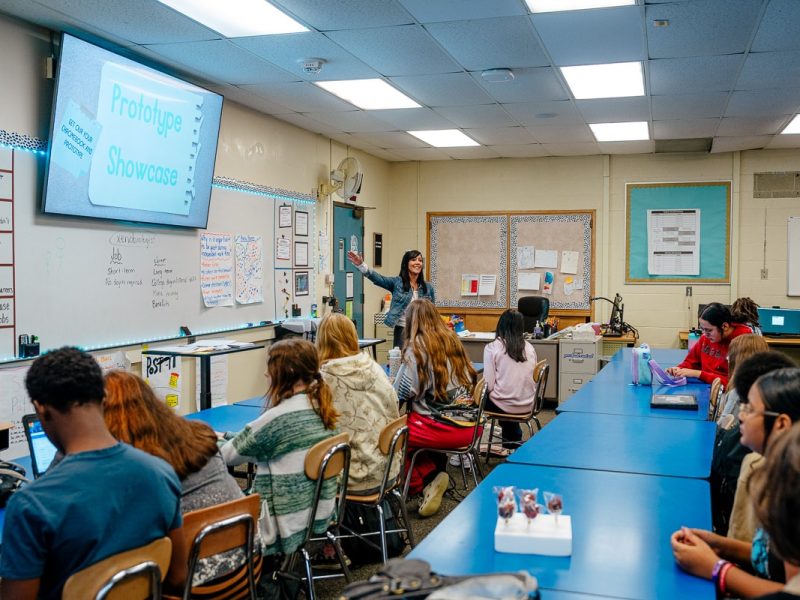Genesee Early College aims to set high school students up for success
Through the Genesee Early College program, students are able to graduate with their high school diploma and up to 60 transferable college credits at no cost to them.

FLINT, Michigan — Some local high school students are getting a jump-start on their college careers by enrolling in the Genesee Early College (GEC). This five-year early college program, launched in 2007, caters to high school students in and around the Genesee Intermediate School District.
Students are able to study a specialized curriculum, preparing them for university-level coursework at the University of Michigan-Flint. By the end of the program, students will graduate with their high school diploma and up to 60 transferable college credits at no cost to them.
GEC’s mission is to provide students with a relevant and rigorous education in an environment that prepares young minds for a successful secondary and post-secondary education. Robert McAllister, principal of Genesee Early College originally began his work with Mott Middle College as the assistant principal, which he has been at for roughly the past decade.
“Originally, the design of GEC was specific towards the medical field, and students who were interested in the medical field would attend GEC and do a work-based learning program. Students would work in the hospitals,” McAllister says. “Eventually, they made the focus broader, so students could focus on other certification programs, nursing, welding, etc. We started to work together with Genesee Career Institute (GCI) and have our students do their work-based learning at GEC.”
McAllister discusses how the program is structured and how it differs from dual enrollment. “Students are navigating between two different worlds: the high school world and the college world,” he says. “Certain schools have traditional dual enrollment and within that, there’s a cap [when it comes to credits earned]. Within the early middle college experience, the students are on a college campus. Students are able to see and be in the environment of college and understand and feel part of the college student body.”
Enrolled ninth and tenth-grade students typically have high school classes with their peers, and later in the eleventh and twelfth grades, can have college classes integrated with other traditional university students. Students in the program register at the higher learning institute, have a college ID and email account, and are considered college students, says McAllister.

“Students start with a full high school schedule in their freshman year, then we transition them into transitional college classes, where we provide support classes to guide the student into their third year, where they really start their journey into the college experience,” McAllister says.
“Hopefully by that third year, students have an idea through that support class, on what pace, direction, or field of study they’d like to attempt to pursue. They can draw a plan out, and try to use that plan as a way to help guide their scheduling for college to reach a certification, gain credit, or up to 60 college credits, earned at the University of Michigan-Flint.”
For many students, college can be uncomfortable or overwhelming, in part, due to the larger setting. Finding simple things like the registrar’s office, financial aid department, library, and class locations can prove difficult. The GEC aims to smooth that transition by bringing students on to that college campus much earlier.
“It gives these kids an opportunity to navigate the college environment and atmosphere so that when they do go off to a university, or stay at Mott Community College or UofM-Flint, they know where to go,” McAllister says. “Then they can concentrate on the academics, and their focus is not on how to get questions answered. They already know the sources to go to in order for their academic needs.”
The COVID-19 pandemic did have an impact on student enrollment numbers which typically served about 162 students/year for the past three years, on average. McAllister says the program experienced an estimated 10-12% decrease in enrollment at GEC. While GEC typically traveled to nearby charters for information sessions and visits, that stopped when many schools went virtually.
“Last year, we kind of got back into some of the charters and were able to have four schools visit both programs, and we’re slowly starting to get our name back out there and remind people we’re a very strong middle early college program giving a strong college experience to students,” McAllister says.
McAllister attributes the program’s continual community success to the care, compassion, and time of staff and teachers involved. Students are hand-scheduled individually for their classes and counselors are invested in each of their academic growth journeys.
“I think it’s the intuitive ability of the teachers; we really do a great job at looking at the whole child, and making sure we are providing not only academic care, but we’re also trying to provide some mental health and self-care, and genuine concern for our students,” McAllister says. “I think that’s what students really appreciate is that genuine concern and interaction.”
Looking ahead, McAllister hopes the program continues to provide the opportunity for Genesee County students and build up their community outreach.
To learn more about Genesee Early College, visit: gec.geneseeisd.org/home






